Skincare for Sensitive Skin.
Skincare for Sensitive Kkin.
When customers ask me about their sensitive skin, I ask them what other products they’re using. Ninety-nine percent of the time, they tell me it’s something with drying alcohol, heavy fragrances or harsh essential oils. Do they have problem skin or problem products?
I tell them that they've spent years using poorly formulated products, which is like years of eating junk food. I then explain that their skin isn’t sensitive, their skin barrier is just really weak.
Ask dermatologists what sorts of problems they are seeing these days, and the answer is: a broken-down skin barrier. It's no wonder the new beauty buzzwords are barrier repair and barrier protection.
Symptoms of a broken skin barrier include inflammation and patchy, flaky skin, and all can eventually lead to other problems since it means the skin’s defences are compromised. Besides sensitive skin, barrier dysfunction is also at least partially responsible for rosacea, eczema , psoriasis and acne, all of which are on the rise, according to epidemiological studies. Natural skincare for sensitive skin can help.
What’s to blame for this barrier malfunction? Using too many products at once, and using them too often.
It’s largely a product of our obsession with having squeaky clean skin and using layer upon layer of products. Combine product overload with environmental assaults, and you have a recipe for skin barrier disaster.
Here’s how to avoid that — or to help repair the damage.
What the Acid Mantle Is, and Why You Absolutely Must Protect It
The acid mantle is the protective film of natural oils, amino acids and sweat that covers your skin. If you damage it with too much scrubbing or neutralize it with alkaline cleansers, then you are on your way to barrier problems: inflammation, allergies, breakouts.
Talking about the acid mantle means talking about pH. You don’t want to use alkaline cleansers on your acidic face. Here are some skin cleaning tips.
Cleansing your skin with anything alkaline interferes with the skin’s ability to repair itself and makes it less elastic. A high pH also encourages the growth of a bacteria called propionibacterium acnes that, as the name implies, plays a major role in many forms of acne. That face wash that is super-foamy and lathery? There’s a fairly good chance it’s alkaline because the ingredients that give it those qualities are high pH.
Christian Surber, a professor of dermatopharmacology at the universities of Basel and Zurich and an author of studies on the acid mantle, suggests avoiding products with a pH of more than 7. This doesn’t mean the lower the pH the better; skin pH is about 5.5 and the ability to tolerate more acid depends on both your skin and how well the product is formulated.
Skin grows more alkaline as we age — activating enzymes that eat away at collagen — and acidic products can restore pH, protecting against saggy skin and the development of wrinkles.
The phrase “pH balanced” means nothing. If you want a specific number, the brand has to supply it. Not even a cosmetic chemist can guess this based on ingredients.
The bad news: When researchers tested 31 moisturizers widely available in the United States, they ranged in pH from 3.73 to a havoc-wreaking 8.19. A 2018 German study found only a little over a third of commonly available moisturizers had an acceptable pH.

pH scale
Problem skin or problem products?
A 10-step Korean regimen is a torture for the skin. Chemical exfoliants like glycolic, lactic and salicylic acid are typically more gentle than physical exfoliants that use particles but neither should be used no more than once or twice a week.
The skin is simply too complex for any single ingredient to do the job, and products with quality emollients and hyaluronic acid can also help repair the skin barrier and replenish lost moisture.
Summary
We believe that in order to achieve clear, healthy-looking skin, a simple, less-is-more practice using irritant-free products to clean and nurture skin needs to be followed to break the cycle of overstimulation, and reset skin's natural balance and regeneration system.
Applying too much product trains your skin to rely on these products - so it gets lazy, can't fend for itself, and can't find any kind of balance with all the product being thrown at it - which perpetuates many skin problems.
Our minimalist philosophy is about taking a few steps back, using fewer but better products, harnessing the power of multitasking, and ultimately committing to a simpler, cleaner skincare routine to achieve better skin health.


